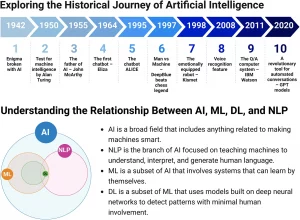Introduction
The advertising landscape is continuously evolving, and with the advent of artificial intelligence (AI), we are witnessing a radical shift in how brands communicate with consumers. AI agents are redefining advertising strategies, offering new opportunities through two main approaches: retrieval-based ads and intent-generating active ads.
AI Agents
AI agents are advanced software programs designed to understand natural language queries, perform specific user tasks on the Internet, and continuously adapt to user preferences. These agents, integrated at the operating system level, simplify digital interactions and have the potential to radically transform the process of purchasing goods and services.
Capabilities of AI Agents
- Understanding Queries: Ability to interpret and respond to user requests formulated in natural language.
- Executing Specific Tasks: Ability to perform specific tasks such as making purchases, booking travel, or searching for information.
- Adapting to User Preferences: Continuous learning from interactions to offer increasingly personalized suggestions.
New Forms of Advertising
Retrieval-Based Ads
These ads are similar to current search ads. They provide targeted advertising alongside organic content in response to specific user queries. For example, searching for “summer vacations” will yield both organic search results and targeted ads from travel agencies.
Intent-Generating Active Ads
These ads go beyond mere information retrieval. They use data on online behavior and user preferences to anticipate needs, offering personalized suggestions without the user needing to make an explicit query. For instance, an AI agent might suggest offers for a new car based on the user’s search history and interactions.
Impacts on the Purchasing Process
AI agents are revolutionizing the purchasing process through:
- Automation of Discovery and Research: AI agents automate the search for products and services, offering personalized recommendations based on user preferences.
- Changing Brand Importance: With increased trust in AI agent recommendations, the influence of brands might diminish. Product availability, prices, and delivery times could become priorities.
- Concrete Examples: Planning vacations or significant purchases like cars could be entirely managed by AI agents, which compare prices, options, and features without manual intervention.
Impacts on Big Tech and New Opportunities
Dominance of Big Tech
Technology companies like Apple, Google, Microsoft, and Meta are well-positioned to benefit from generative AI due to their resources and infrastructure. However, platform changes might open opportunities for new market leaders.
Opportunities for New Competitors
New players could emerge in the AI-based consumer hardware sector, focusing on innovative and user-friendly products that meet specific consumer needs.
Importance of Flexibility and Personalization
The ability to offer flexible and personalized solutions will be crucial for new entrants seeking to carve out market niches.
Challenges and Ethical Considerations
Privacy and Transparency
The effectiveness of AI agents will depend on their ability to provide relevant and non-intrusive ads while ensuring consumer privacy. Transparency about which data is used will be crucial to maintaining user trust.
Balancing Convenience and Privacy
Users must understand and control how their data is used, balancing the convenience offered by AI agents with the protection of personal privacy.
AI is transforming advertising, introducing innovative approaches such as retrieval-based ads and intent-generating active ads. These changes are not only redefining advertising strategies but also how consumers interact with brands and make purchases. Adapting to these changes and leveraging new opportunities will be crucial for the success of both established companies and new competitors. The key will be finding a balance between service personalization and user privacy protection.









